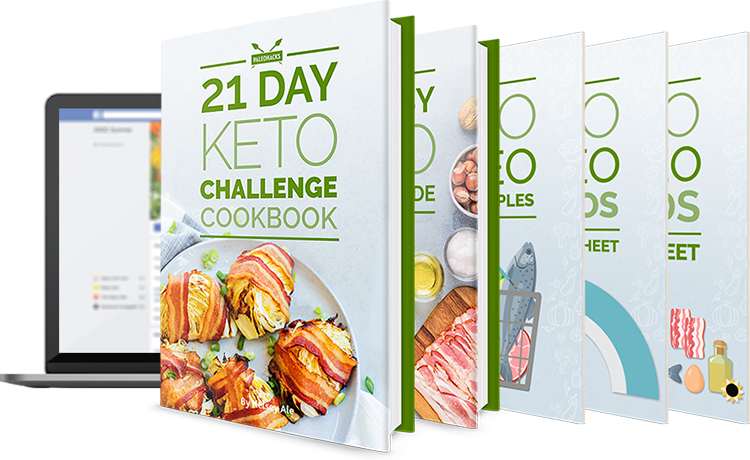You’ve probably heard countless diet myths that promise quick results, but they often lead to disappointment and frustration. Understanding the truth behind these common misconceptions is essential for long-term success. For instance, carbs aren’t your enemy, and skipping meals can backfire, leading to overeating and a sluggish metabolism. Did you know that fat isn’t inherently bad and detox diets can actually be harmful? And what about supplements—can they really replace a balanced diet? Let’s explore these myths and uncover the facts that can help you achieve sustainable weight loss. By focusing on whole, nutrient-dense foods rather than succumbing to fad diets, you can make choices that nurture your body and promote well-being. Incorporating a variety of exercises into your routine, not just high-intensity workouts, plays a crucial role in creating sustainable weight loss strategies. Remember, the key to success lies in consistency and creating a balanced lifestyle that you can maintain in the long run.
Carbs Are the Enemy
Many people believe that carbs are the enemy when it comes to weight loss and healthy eating. This misconception often leads to a low carb fad where you might think cutting out all carbs will magically shed pounds. However, this approach can create carb confusion, making it difficult to understand which carbs are actually beneficial.
Not all carbs are created equal. Simple carbs, like those in sugary snacks and white bread, can spike your blood sugar and lead to energy crashes. However, complex carbs found in whole grains, fruits, and vegetables provide essential nutrients and sustained energy. By completely avoiding carbs, you risk missing out on these crucial health benefits.
Instead of eliminating carbs, focus on choosing the right ones. Opt for whole grains like quinoa or brown rice, and incorporate plenty of fruits and vegetables into your meals. These foods are rich in fiber, which helps keep you full and supports healthy digestion.
Skipping Meals Helps
Skipping meals might seem like a quick way to cut calories and lose weight, but it actually can backfire. When you skip meals, your meal frequency drops, leading to fluctuations in your hunger hormones like ghrelin and leptin. Ghrelin signals hunger to your brain, while leptin tells you when you're full. Skipping meals can cause ghrelin levels to spike, making you feel ravenous and more likely to overeat at your next meal.
Additionally, irregular meal frequency can disrupt your metabolism. When your body doesn't know when it will get its next meal, it may start storing more fat as a precautionary measure. This can make weight loss even more challenging. You're also more likely to make poor food choices when you're extremely hungry, reaching for high-calorie, low-nutrient options that don't support your weight loss goals.
To maintain a healthy weight, it's better to eat balanced meals at regular intervals. This helps keep your hunger hormones in check and supports a steady metabolism. Instead of skipping meals, focus on portion control and nutrient-dense foods. This approach will help you achieve sustainable weight loss and overall better health.
Fat Makes You Fat
It's a widespread myth that eating fat will inevitably make you gain weight. The truth is, not all fats are created equal. The key is to focus on fat quality rather than just quantity. Healthy fats, like those found in avocados, nuts, and olive oil, are essential for your body. They help absorb vitamins, support cell function, and even improve heart health.
When you choose healthy fats, you're making a smart decision for sustainable weight management. These fats can make you feel fuller longer, reducing the urge to snack on less nutritious foods. On the other hand, trans fats and excessive saturated fats, often found in processed foods, can lead to weight gain and other health issues.
Don't fall into the trap of eliminating fats completely from your diet. Instead, incorporate foods rich in healthy fats. This approach not only helps in managing your weight but also supports overall well-being. Remember, the quality of the fat you consume matters substantially. So next time you're planning your meals, prioritize healthy fats and you'll see positive changes without the unnecessary weight gain.
Detox Diets Work
While focusing on healthy fats can aid in weight management, another common belief is that detox diets can cleanse your body and boost your health. You've probably heard claims that detox diets can eliminate toxic buildup, cleanse your colon, and give you a fresh start. However, these claims are often exaggerated and lack scientific backing.
Here's why detox diets might not be as effective as you think:
- Your body is already equipped: Your liver, kidneys, and intestines already do a great job of detoxifying your body. They work 24/7 to filter out harmful substances without the need for special diets.
- Lack of scientific evidence: There's little proof that detox diets are effective. Most of the weight loss seen is temporary and mainly due to water loss, not fat loss.
- Potential risks: Extreme detox diets can lead to nutritional deficiencies, dehydration, and electrolyte imbalances. These diets often lack essential nutrients your body needs for proper functioning.
- Expense and inconvenience: Many detox programs are costly and require significant time and effort. You could achieve better results with a balanced diet and regular exercise.
Instead of relying on detox diets, focus on sustainable, healthy eating practices for long-term well-being.
Supplements Replace Food
Though supplements can be a useful addition to your diet, they shouldn't be seen as a replacement for real food. Relying on supplements as vitamin shortcuts can lead to missing out on essential nutrients that whole foods provide. Whole foods offer a complex matrix of vitamins, minerals, fiber, and antioxidants that work synergistically to support your health.
When you opt for a balanced diet, you're getting more than just isolated nutrients. For instance, an apple provides fiber, vitamins, and antioxidants that supplements can't fully replicate. Supplements are often designed as nutritional insurance, meant to fill gaps in your diet, not to replace it entirely.
Moreover, many supplements are poorly regulated, and their quality can vary substantially. Some might not even contain the nutrients they claim to offer. Over-reliance on supplements can also lead to excessive intake of certain vitamins or minerals, potentially causing harm. For example, too much vitamin A can lead to toxicity.
At a Glance
By debunking these top diet myths, you can focus on a balanced approach to eating and exercise. Remember, carbs aren't the enemy; whole grains, fruits, and veggies are your friends. Skipping meals only disrupts your metabolism, and healthy fats are vital for heart health. Detox diets don't work and can be harmful, and supplements should never replace real food. Embrace these truths for sustainable weight loss and long-term well-being.





